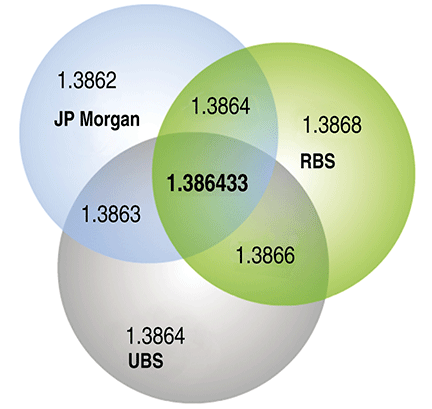FOREX FOCUS
The Risks, The Pitfalls, The Intrigue
A Guide To Forex Arbitrage
What should traders understand about arbitrage as it pertains to the forex market?
Foreign exchange arbitrage is a hotly debated topic in the forex community with many unknowns, as successful arbitrageurs may not have the incentives to disclose their methodology until after it is no longer effective. Since the concept of arbitrage is so intriguing, traders are attracted to it but do not have resources to find quality unbiased information on the subject. We will discuss some of the most important aspects that traders should understand about arbitrage as it pertains to the FX market.
FX versus other markets
Forex markets are not traded on an exchange; forex is an over-the-counter (OTC) spot market where participants exchange one currency for another. Since there is no exchange, the price that one bank may quote for an FX rate may be different from that of another bank.
However, with technological developments such as the increase of Internet speeds, computing power, and pricing algorithms, FX prices can be obtained from multiple sources. Further, since banks also trade with multiple counterparties, a close to market price can be created. This means the difference in price between different FX liquidity pools could be minimal. Price discrepancies may only exist for a minuscule length of time (in fact, measured in milliseconds), and it is questionable whether these discrepancies provide ample opportunity for profit.

FIGURE 1: FX PRICE CREATION. The price between two individual banks, RBS and UBS, is 1.3866, which is different from the price between UBS and JP Morgan — 1.3863 — and different from the price between JP Morgan and RBS 1.3864. The number in the middle of the diagram where all three circles intersect would be known as the market price.